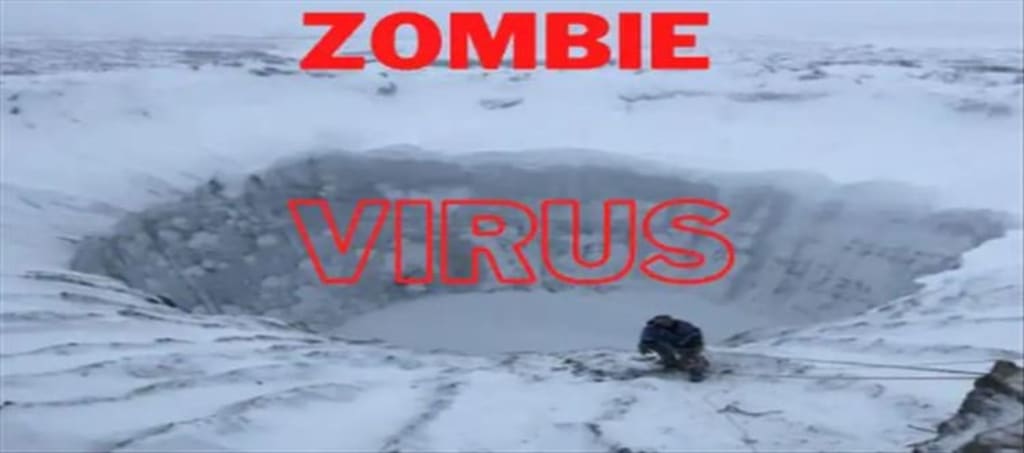
The idea of a "zombie virus" has been popularized in movies, TV shows, and video games, but in reality, there is no actual virus that turns people into zombies. The concept of a "zombie virus" is purely fictional and has no scientific basis.
It's important to note that the COVID-19 pandemic is caused by a real virus, the SARS-CoV-2 virus, which has caused significant illness, hospitalizations, and deaths around the world. COVID-19 is a respiratory illness that is primarily spread through respiratory droplets when an infected person talks, coughs, or sneezes.
prize for reading free $500 Mcdonald coupon>>https://bit.ly/3lvVQne
There is no evidence to suggest that a zombie virus exists or that it is related to COVID-19. The concept of a zombie virus is a product of popular culture, and it is not supported by scientific evidence.
While a zombie virus is not a real threat, there are real viruses that pose a significant threat to human health. COVID-19 is just one example of a virus that has caused significant illness and death around the world. Other viruses that are of concern include influenza, Ebola, and HIV, among others.
It's important to remain informed about real health threats and to take appropriate precautions to protect yourself and others. This includes getting vaccinated against COVID-19, practicing good hygiene, and following public health guidelines to prevent the spread of infectious diseases.
prize for reading free $500 Mcdonald coupon>>https://bit.ly/3lvVQne
In conclusion, the concept of a zombie virus is a fictional one, and it has no scientific basis. It is not related to COVID-19, and it does not pose a real threat to human health. While it may be an entertaining subject for movies and TV shows, it is not a topic that should be taken seriously in the context of public health.
While the concept of a zombie virus is purely fictional, it is interesting to consider how a virus could potentially affect human behavior if it were to mutate in a specific way. In some fictional portrayals of zombie viruses, the virus is portrayed as causing a rapid transformation in infected individuals, leading to aggressive and violent behavior.
However, in reality, viruses do not work in this way. Viruses are infectious agents that invade host cells and use their machinery to replicate and spread. They do not have the ability to control behavior or transform humans into mindless, aggressive zombies.
prize for reading free $500 Mcdonald coupon>>https://bit.ly/3lvVQne
It's also worth noting that the idea of a "zombie virus" is often tied to conspiracy theories and fear-mongering. Some people may use the concept of a zombie virus as a way to spread misinformation or create panic.
As for the question of whether a zombie virus is more dangerous than COVID-19, it's impossible to compare the two. COVID-19 is a real virus that has caused significant illness and death around the world, while a zombie virus is a purely fictional concept.
In terms of whether a zombie virus is already here and waiting to attack, there is no evidence to suggest that this is the case. As mentioned earlier, the concept of a zombie virus is purely fictional and has no scientific basis.
prize for reading free $500 Mcdonald coupon>>https://bit.ly/3lvVQne
In conclusion, while the idea of a zombie virus may be entertaining in works of fiction, it is not a real threat to human health. It's important to focus on real health threats, such as COVID-19, and to take appropriate precautions to protect yourself and others. This includes following public health guidelines, getting vaccinated, and staying informed about the latest developments in infectious disease.
It's worth noting that even though a zombie virus may not be a real threat, there are real-world scenarios where viral outbreaks have caused significant harm to human health. In recent years, there have been outbreaks of deadly viruses such as Ebola and Zika, which have caused widespread illness and death in some parts of the world.
Additionally, emerging viral diseases like COVID-19 have highlighted the importance of preparedness and effective response strategies for infectious disease outbreaks. Governments, health organizations, and scientists around the world have been working together to develop effective vaccines and treatments for COVID-19 and to improve global surveillance and response capabilities.
prize for reading free $500 Mcdonald coupon>>https://bit.ly/3lvVQne
In terms of the origins of the zombie virus concept, it likely emerged as a cultural phenomenon in the early 20th century, with the publication of horror novels and films that featured undead creatures. Over time, the idea of a virus that could transform humans into zombie-like creatures became more popularized in pop culture, with films like George A. Romero's Night of the Living Dead (1968) and video games like Resident Evil (1996) helping to solidify the concept in the public consciousness.
While the concept of a zombie virus is fictional, it does raise interesting questions about the potential impacts of viral outbreaks and the ways in which infectious diseases can impact human behavior and society. As the world continues to grapple with the ongoing COVID-19 pandemic, it's important to remain vigilant and prepared for the potential emergence of new viral threats in the future.
Another interesting aspect of the zombie virus concept is how it highlights the societal implications of a major viral outbreak. In fictional depictions of zombie viruses, we often see the breakdown of social structures and the emergence of new power dynamics as survivors attempt to navigate a post-apocalyptic world.
While a zombie virus is not a real threat, the COVID-19 pandemic has certainly highlighted the ways in which infectious diseases can impact society. The pandemic has led to disruptions in global supply chains, changes in working conditions, and the emergence of new social norms such as mask-wearing and physical distancing.
prize for reading free $500 Mcdonald coupon>>https://bit.ly/3lvVQne
The COVID-19 pandemic has also highlighted the importance of equitable access to healthcare and the need for global cooperation in responding to public health crises. The development of effective vaccines and treatments for COVID-19 has been a global effort, with scientists and healthcare workers from around the world working together to develop and distribute these life-saving tools.
In conclusion, while the concept of a zombie virus may be purely fictional, it does raise important questions about the potential impacts of viral outbreaks and the societal implications of major public health crises. By remaining vigilant and prepared for the emergence of new infectious diseases, we can work to protect ourselves and our communities and ensure that we are better equipped to respond to future threats.
prize for reading free $500 Mcdonald coupon>>https://bit.ly/3lvVQne
About the Creator
Epler Ben
if you want to see change in the world, you must first embody that change in your own actions and behaviors. This means taking responsibility for our own actions, and working to create positive change in our communities and beyond.






Comments
There are no comments for this story
Be the first to respond and start the conversation.